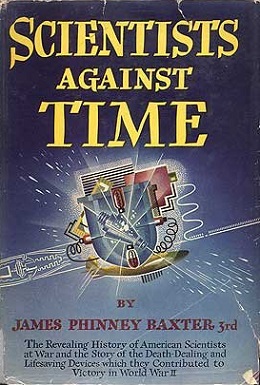Related Research Articles

The Pulitzer Prizes are 23 annual awards given by Columbia University in New York for achievements in the United States in "journalism, arts and letters." They were established in 1917 by the will of Joseph Pulitzer, who had made his fortune as a newspaper publisher.

The Pulitzer Prize for History, administered by Columbia University, is one of the seven American Pulitzer Prizes that are annually awarded for Letters, Drama, and Music. It has been presented since 1917 for a distinguished book about the history of the United States. Thus it is one of the original Pulitzers, for the program was inaugurated in 1917 with seven prizes, four of which were awarded that year. The Pulitzer Prize program has also recognized some historical work with its Biography prize, from 1917, and its General Non-Fiction prize, from 1962.
This article contains information about the literary events and publications of 1983.

William Sowden Sims was an admiral in the United States Navy who fought during the late 19th and early 20th centuries to modernize the navy. During World War I, he commanded all United States naval forces operating in Europe. He also served twice as president of the Naval War College.
Burton Jesse Hendrick, born in New Haven, Connecticut, was an American author. While attending Yale University, Hendrick was editor of both The Yale Courant and The Yale Literary Magazine. He received his BA in 1895 and his master's in 1897 from Yale. After completing his degree work, Hendrick became editor of the New Haven Morning News. In 1905, after writing for The New York Evening Post and The New York Sun, Hendrick left newspapers and became a "muckraker" writing for McClure's Magazine. His "The Story of Life-Insurance" exposé appeared in McClure's in 1906. Following his career at McClure's, Hendrick went to work in 1913 at Walter Hines Page's World's Work magazine as an associate editor. In 1919, Hendrick began writing biographies, when he was the ghostwriter of Ambassador Morgenthau's Story for Henry Morgenthau, Sr.
The Pulitzer Prizes for 1921:

Lawrence Henry Gipson was an American historian, who won the 1950 Bancroft Prize and the 1962 Pulitzer Prize for History for volumes of his magnum opus, the fifteen-volume history of "The British Empire Before the American Revolution", published 1936–70. He was a leader of the "Imperial school" of historians who studied the British Empire from the perspective of London, and generally praised the administrative efficiency and political fairness of the Empire.
Carl Neumann Degler was an American historian and Pulitzer Prize-winning author. He was the Margaret Byrne Professor of American History Emeritus at Stanford University.

Elizabeth Kolbert is an American journalist, author, and visiting fellow at Williams College.
Charles Leffingwell Bartlett was an American journalist who won the 1956 Pulitzer Prize for National Reporting "for his original disclosures that led to the resignation of Harold E. Talbott as Secretary of the Air Force."

Paul Herman Buck was an American historian. He won the Pulitzer Prize for History in 1938 and became the first Provost of Harvard University in 1945.
Roy Franklin Nichols was an American historian who won the 1949 Pulitzer Prize for History for The Disruption of American Democracy.

Wallace Turner was an American journalist and government administrator. A native of Florida, he won a Pulitzer Prize in 1957 while working for The Oregonian in Portland, Oregon. Turner later worked in the Kennedy administration before returning to the newspaper business where he worked for The New York Times.

Scientists Against Time is a nonfiction history book by James Phinney Baxter III. It was published in 1946 by Little, Brown and Company, and won the 1947 Pulitzer Prize for History.

Paul Revere and the World He Lived In is a nonfiction history book by Esther Forbes. It won the 1943 Pulitzer Prize for History.
The Triumphant Empire: Thunder-Clouds Gather in the West 1763-1766 is a book by Lawrence H. Gipson. It won the Pulitzer Prize for History in 1962.
The Republican Era, 1869–1901 is a book by Leonard D. White and Jean Schneider. It won the 1959 Pulitzer Prize for History.

Great River: The Rio Grande in North American History is a book by Paul Horgan. It won the Pulitzer Prize for History and the Bancroft Prize in 1955.
The Road to Reunion, 1865–1900 is a nonfiction history book by Paul Herman Buck. It won the 1938 Pulitzer Prize for History.

The American Revolution: A Constitutional Interpretation is a book by Charles Howard McIlwain. It won the 1924 Pulitzer Prize for History.
References
- ↑ "1921 Pulitzer Prizes". Pulitzer. Retrieved 12 September 2020.
- ↑ Elizabeth A. Brennan; Elizabeth C. Clarage (1999). Who's who of Pulitzer Prize Winners. Greenwood Publishing Group. pp. 280–. ISBN 978-1-57356-111-2 . Retrieved 12 September 2020.

